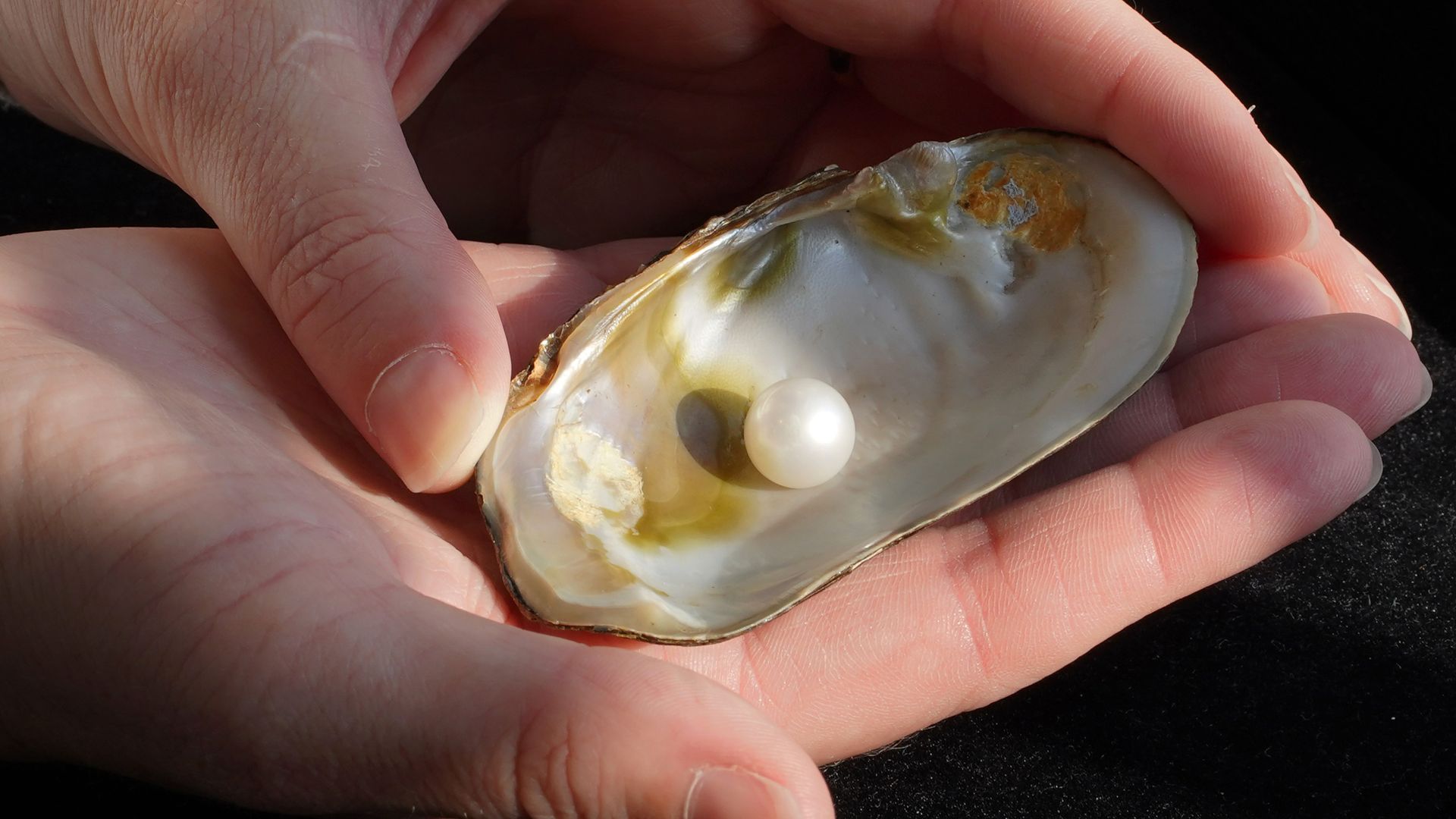A renowned pearl will be staying in Scotland after selling for almost £94,000 at auction, said to be a world record.
The Abernethy Pearl – the largest Scottish freshwater pearl found in living memory – was discovered in 1967 and was named after its finder, William Abernethy, known as the nation’s last pearl fisherman.
The pearl was bought by a Scottish buyer when it went under the hammer in Edinburgh at Lyon & Turnbull on Wednesday.
It sold for £93,951, which the auctioneers said was a world record for this type of pearl.
The piece formed the highlight of The Cairncross Collection auction in which every single item was bought, an occurrence known in the industry as a “white glove sale”.
Keep up with all the latest news from the UK and around the world by following Sky News
Ruth Davis, head of jewellery at Lyon & Turnbull, said: “We are pleased to be able to say that The Abernethy Pearl has found a good home with its new buyer, and will be staying in Scotland.
“It has been a real pleasure to present this collection and see the admiration given to Cairncross from across the UK and beyond.”
Hundreds of Aberdeen homes to be demolished amid RAAC safety fears
Warning to pet owners after cats die in suspected poisonings
‘Dangerous’ man who followed lone women in Paisley jailed for sex attacks
Read more from Sky News:
Hollywood actress says she is ‘alive and well’ after appearing to eat poisonous fruit
Drummer often called fifth Beatle launches B&B in former band’s old haunt
Be the first to get Breaking News
Install the Sky News app for free
The collection featured pieces from renowned Scottish jewellers, Cairncross of Perth, which was established in 1869 by brothers Alexander and George Cairncross and finally closed its doors 154 years later in 2023.
It is believed the Abernethy Pearl could have been quietly growing in its mussel for more than 80 years before Mr Abernethy found it, meaning it was created during the reign of Queen Victoria.
He died in 2021 aged 96 and never disclosed where he made the discovery.
Pearl fishing was banned completely in Scotland in 1998.
It is thought that only one in every 5,000 mussels found in Scottish rivers contains a pearl, and generally they are smaller than those found in saltwater.






